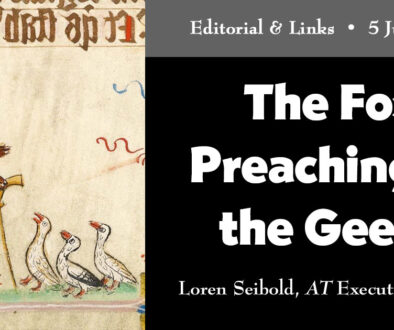Sharing Scripture for April 5 – 11
[symple_heading style=”” title=”The Uniqueness of the Bible” type=”h1″ font_size=”40″ text_align=”center” margin_top=”0″ margin_bottom=”30″ color=”undefined” icon_left=”” icon_right=””]
This is a tool for you to use if you lead a Sabbath School (SS) class or small group. It is keyed to the Bible texts used in the current week’s Adult SS Lesson and includes a brief story from current news you can use to introduce the discussion and then a series of discussion questions in a relational pattern designed to build fellowship and spiritual reflection.
For use: April 5 – 11
Texts: 2 Peter 1:19-21; 2 Timothy 3:16, 17; Deuteronomy 18:18; Exodus 17:14; John 1:14; Hebrews 11:3, 6
A new light is appearing in the night sky, albeit for a limited time only. Comet ATLAS has the potential to become a celestial sight for the history books, rivaling Comet West, which appeared in 1976. ATLAS, named after the Asteroid Terrestrial-impact Last Alert System, which discovered it on December 29, 2019, is currently visible with a small telescope or binoculars. There is a good chance that it will be nearly as bright as Venus by mid-May. Besides its potential for a heavenly display, astronomers hope to learn the origins of our solar system from their study of comets.
The discovery was actually a byproduct of the true mission of the ATLAS system, an automated sky survey looking for asteroids which could potentially impact Earth. As with any astronomical event, ATLAS could be a fantastic celestial light show or a colossal flameout. “Comets are like cats,” observes comet expert David Levy. “They have tails and they do what they want.” Only time and clear night skies will reveal what this comet eventually becomes. [1]
The true light of God appeared to humanity in the form of Jesus, some 2,000 years ago. John describes Jesus this way: “In Him was life, and that life was the light of men” (John 1:14). This week’s lesson explores the connection between Christ, the Word, and the Bible, the written word of God. Just as Jesus stepped down from heaven to reveal God’s love by taking on human form, so the Bible is the divine revelation of God’s love to earth, written in human language by authors inspired by the Holy Spirit. Jesus, also known as the Word, is the origin of our written words today.
One of the best treatises on the subject of the origin and nature of inspiration is found in the introduction to Ellen White’s book The Great Controversy. Friday’s lesson quotes from that passage, “In His word, God has committed to [humans] the knowledge necessary for salvation.” Rather than an expression of verbal inspiration—God dictating the scriptures word for word—the Bible is an example of thought inspiration, the “infallible revelation of His will.” Then God gives us an added advantage in our understanding of Scripture: The Holy Spirit opens “the word to His servants, to illuminate and apply its teachings.” The light of God given to an increasingly darkened world, transmitted by the Holy Spirit and exemplified by the life and ministry of Jesus, will shine long after the illumination of stars and comets fades away.
[symple_divider style=”solid” margin_top=”20″ margin_bottom=”10″]
Connecting: Each one may succinctly share with the rest of your group one new thing they’ve learned about life in the past three weeks. Is this a major, life-altering revelation, or just an interesting factoid that will soon fade from memory?
Sharing: Read John 1:1-14. What, to you, is the most impressive light that we see in the life and person of Jesus?
- The wisdom that Jesus shared in sermons and parables
- The glory of His perfect character
- The enlightening revelations found in the scriptures that Jesus opens to our understanding
- The blinding glory that we’ll see in Jesus’ physical form at the second coming
- The realization that in Jesus we see divinity flashing through humanity
- Other:
Applying: As you consider the insights you are gaining about yourself and others during this pandemic-induced isolation, formulate your personal plans for documenting these life lessons. Share with your group your plans to preserve your musings. Will you write a written journal? Record a video diary? If you’re in an online group this week, share what you are learning with them, and ask what they’re learning.
Valuing: Personally pick a passage of Scripture that you will dig deeply into this coming week. Initiate some voluntary accountability and tell a friend what you are doing, and then plan to briefly share together what you have learned, when the time is right.
~ Chuck Burkeen
[1] https://astronomy.com/news/




